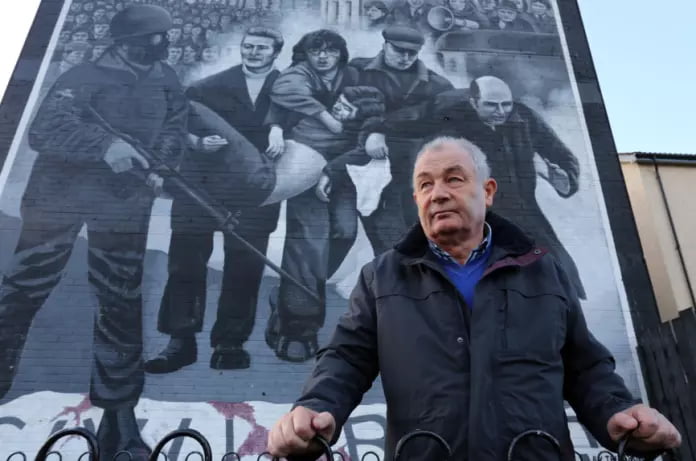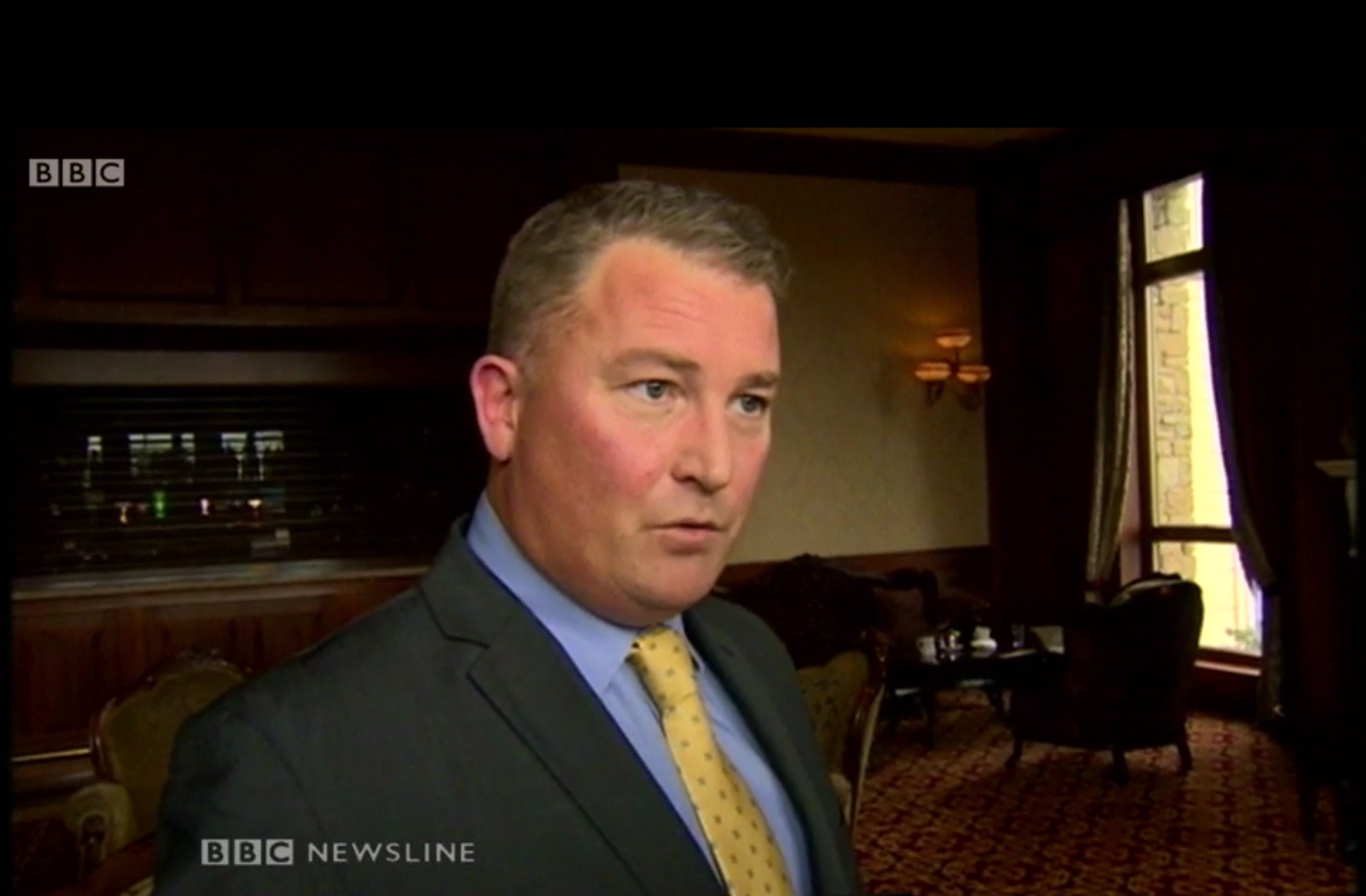
Mickey McKinney, whose brother William was murdered on Bloody Sunday, stands beside a mural in the Bogside.
Ciarán Shiels and Mickey McKinney launch stinging criticism of ongoing attempts to make British soldiers beyond the Rule of Law.
The brother of a man shot in the back by British paratroopers on ‘Bloody Sunday’ has described calls for a review of investigations into crimes committed by former soldiers as a cynical “stalling tactic”.
Mickey McKinney’s brother William (26) was shot dead as he fled paratroopers’ bullets into Glenfada Park 45 years ago on Monday.
Mr. McKinney said claims by unionist politicians that investigations have been disproportionately focused against former soldiers are false.
He also said fresh calls for a review of ‘Troubles’ investigations into former soldiers are attempts to stall the administration of justice for families of those killed by the state during the conflict.
“These soliders who say they are being treated unfairly didn’t worry about fair play in 1972 when they were taking innocent lives and then lying about what they had done,” said Mr. McKinney.
“It appears to me that when they are now calling for an inquiry it is obviously another stalling tactic in the hope that they get away with taking responsibility for the murder and maiming that they inflicted on ‘Bloody Sunday,’” he said.

Ciarán Shiels of Madden & Finucane
Mr. McKinney’s lawyer, Ciarán Shiels, a partner with Madden and Finucane, who represents most of the Bloody Sunday families, said: “What we are seeing manifest itself in the reaction by lawyers in London, sections of the British media, and various Tory and Unionist politicians recently to the PPS decisions to prosecute soldiers suspected of, amongst other offences, the murders and attempted murders of Irish citizens is a general shock to the psyche of the military who rightly felt they were licensed to kill civilians here with effective impunity.
“They were able to do so by dint of the unlawful agreement pertaining at the time between the then RUC Chief Constable, Graham Shillington, and the Army GOC, Sir Harry Tuzo, which effectively meant that these investigations were carried out for ‘managerial purposes’ and not as proper criminal murder investigations. “The mere possibility that members of the British Army might now be held to criminal account and face the Rule of Law, like other citizens, is a complete anathema to them.”
You must be logged in to post a comment.